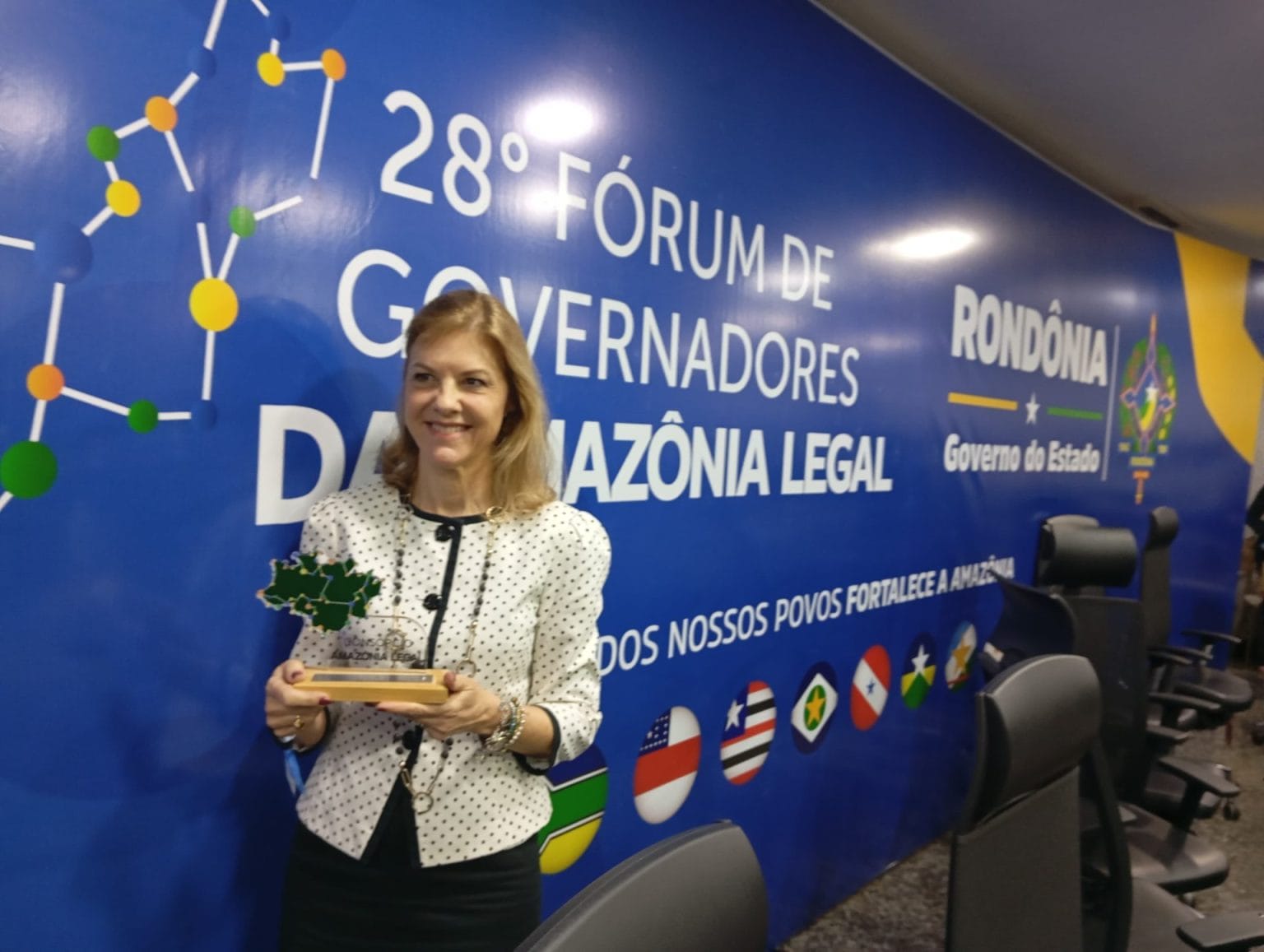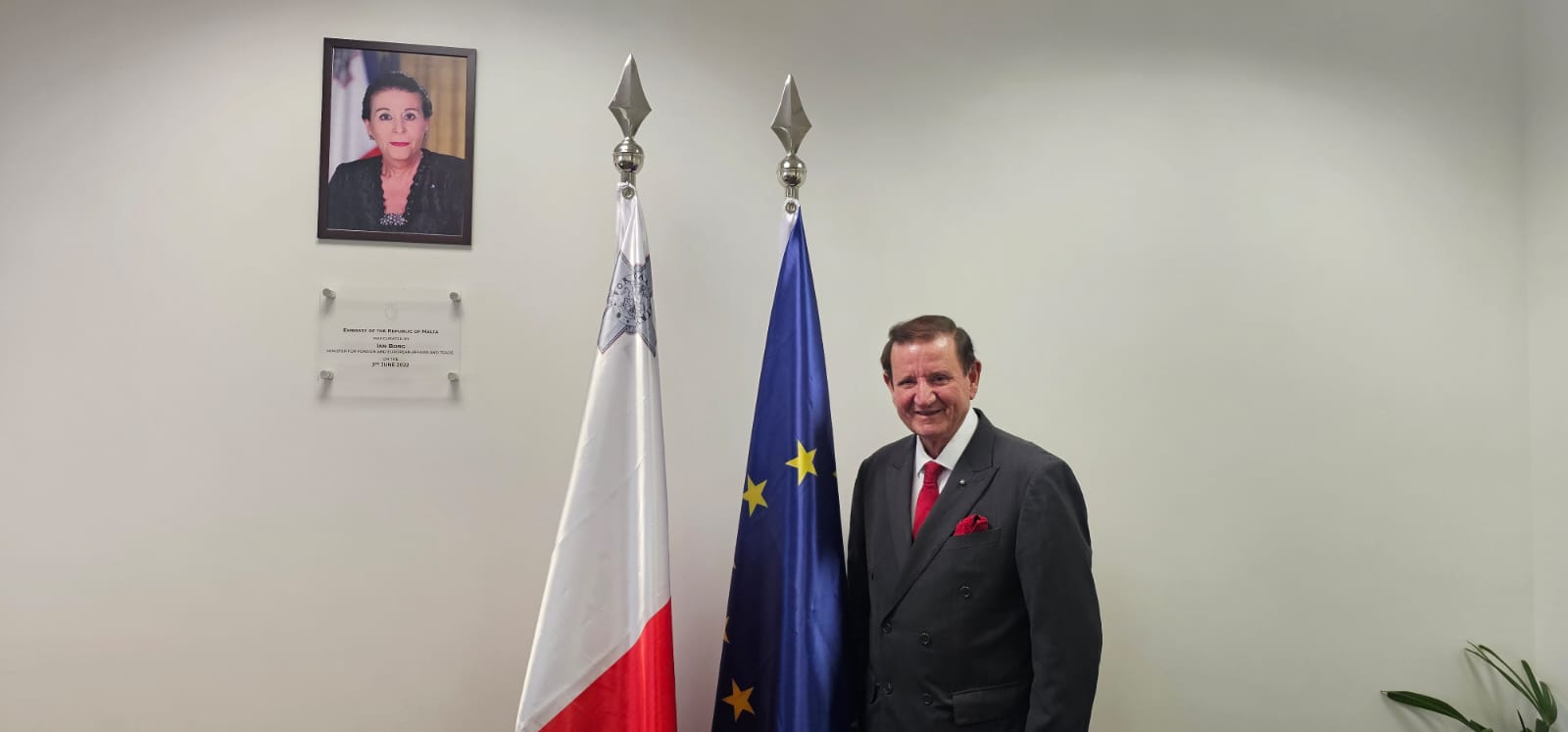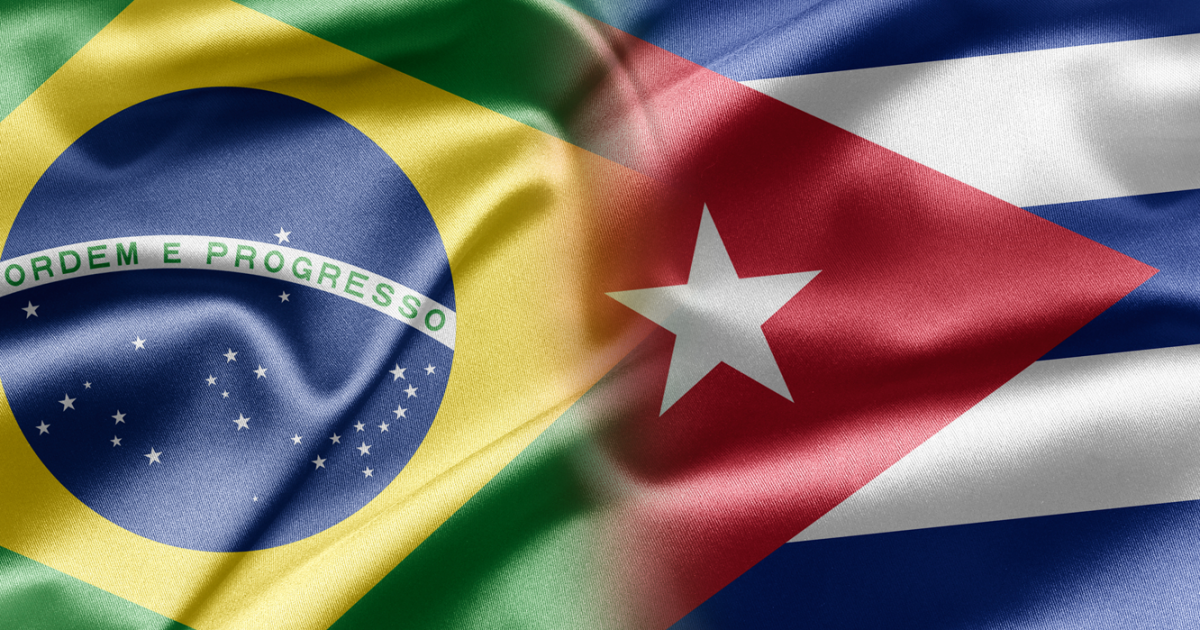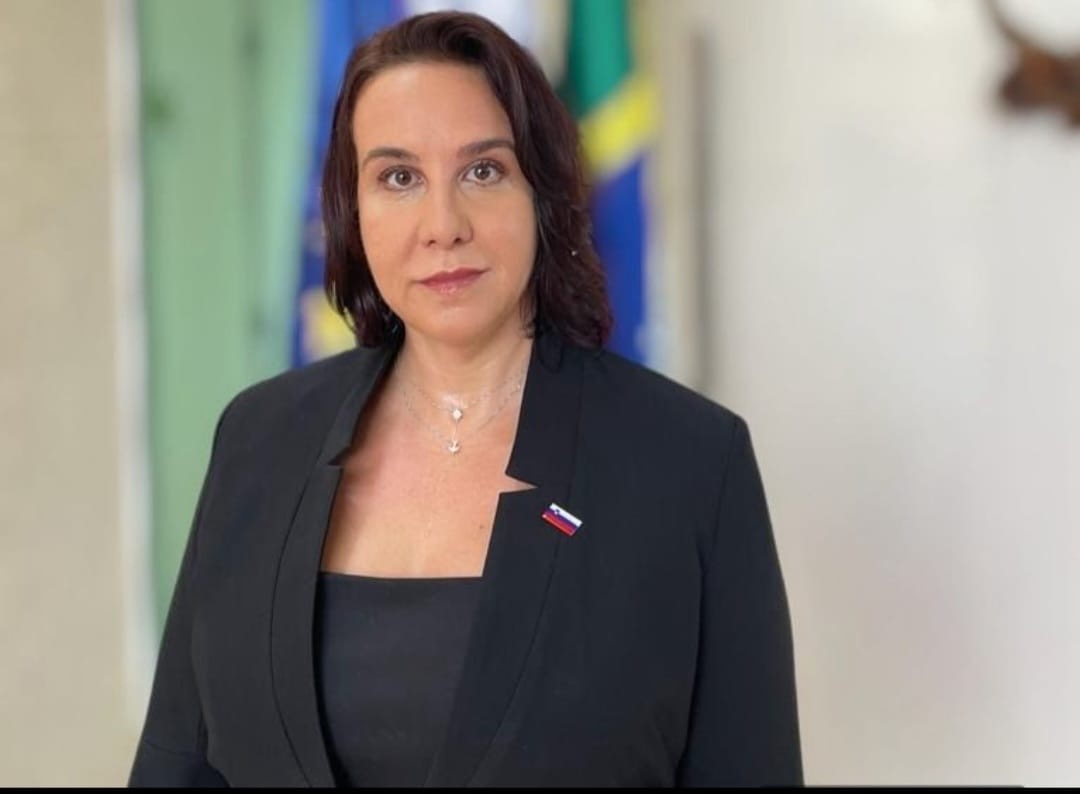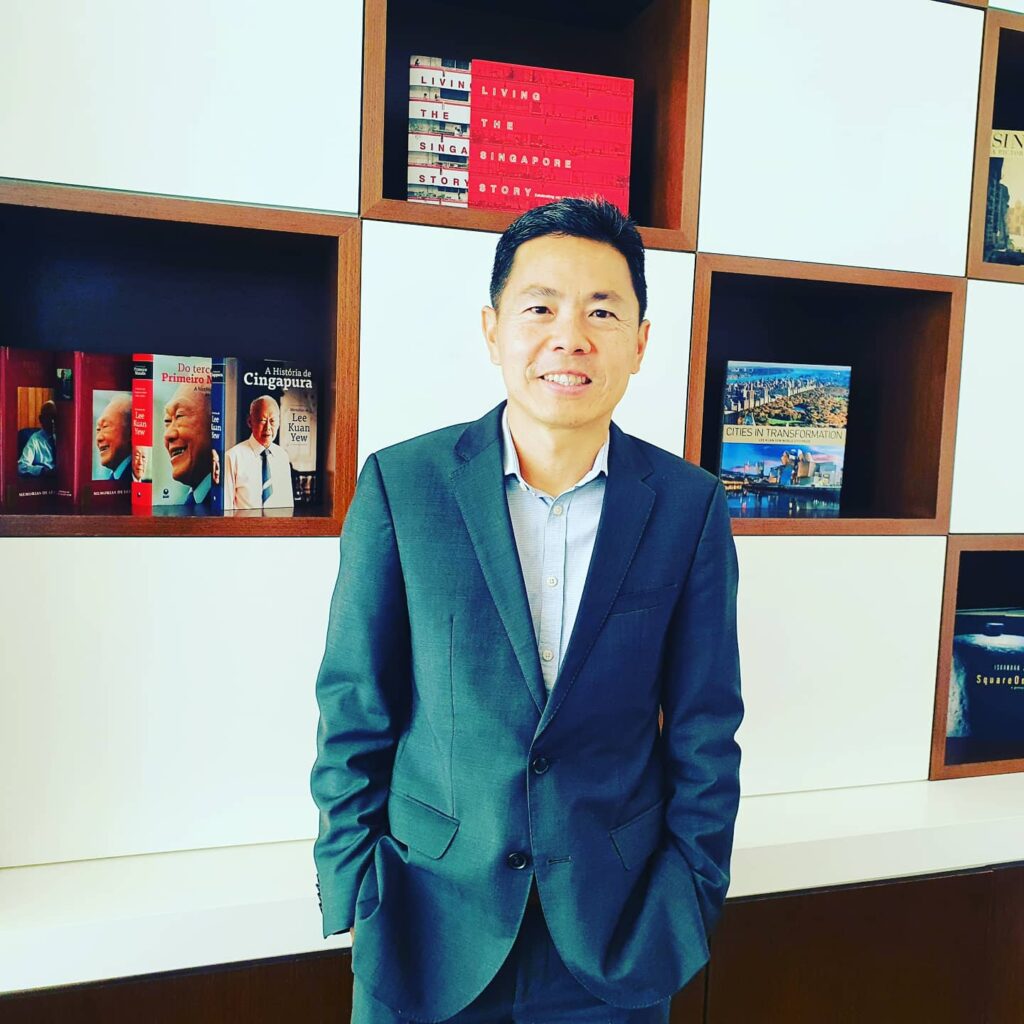
1) Please tell our readers about the relations between Singapure and Brasil.
Brazil-Singapore relations continue to grow from strength to strength. Brazil was the first country in Latin America that Singapore established diplomatic relations with in 1967, following our independence in 1965. Brazil is Singapore’s largest trading partner in Latin America while Singapore is the fourth largest Asian investor in Brazil. In 2019, bilateral trade in goods amounted to R$20.5 billion (S$5.39 billion) and trade in services to R$12.5 billion (S$3.3 billion). Singapore’s key exports to Brazil are mainly in advanced electronics components, and engines and motors for jets and gas turbines. Brazil exports refined petroleum, metals, and frozen meats to Singapore. In fact, Brazil has become a key food supplier to Singapore and was Singapore’s top supplier of frozen chicken, frozen pork, and frozen beef in 2019. We are now ranked as the eighth largest export destination for Brazil globally.
Singapore’s investments into Brazil amounted to R$6.08 billion (S$1.6 billion) in 2019. There are more than 50 Singapore-based companies with a business presence in Brazil. Our key focus is in the oil and gas industry, and we operate 2 shipyards in Brazil as well as provide services in niche areas to support the oil and gas ecosystem. E-commerce company Shopee also recently set up a regional headquarters in Sao Paulo. In addition, we are the operator of the Galeao International Airport in Rio De Janeiro. In return, major Brazilian companies like Petrobras, Vale, Embraer and Tramontina have established their regional headquarters in Singapore.
At the government-to-government level, we have signed several important agreements. We have a Visa Abolition Agreement that was signed in 2017, as well as an Avoidance of Double Taxation Agreement that was ratified by the Brazilian Congress this year and will come into force in January 2022. Brazil and Singapore are also in negotiations for a Mercosul-Singapore Free Trade Agreement (FTA).
2) Could you explain about the development of Singapure in the last years and the important points that you think helped to this fast economic stability.
After separating from Malaysia and becoming independent in 1965, we faced severe economic challenges. The separation meant the loss of a common market and a hinterland. Singapore had no natural resources or industry. Our total dependence on the outside world forced us to think in terms of a global network. We needed to focus on being a valuable and reliable trading partner. The government made two strategic decisions.
The first was to abandon import substitution in favour of export-oriented industrialization. Import substitution was a strategy used by many countries in Southeast Asia at the time when they had just gained independence. However, this was not a sustainable strategy for Singapore because of our limited market.
The second was to attract global multinational corporations as vehicles for achieving industrial growth. The idea was that these corporations would bring expertise and investment to increase our industrial infrastructure, and would create jobs for Singaporeans.
The government developed industrial land, implemented infrastructure facilities, reformed labour laws and invested in basic education, with an emphasis on technical skills. Industrialization began in the 1960s with factories producing low value-added goods. In the late 70s, Singapore transitioned to manufacturing high value-added electronics, petrochemicals, and precision engineering. By the 1980s, Singapore had become the world’s largest producer of computer hard drives.
From the beginning, we have advocated the virtue of free trade, and have consistently pushed for the liberalisation of global trade and the establishment of FTAs with like-minded countries. Singapore currently has 26 FTAs with 65 global trading partners. Coupled with political stability, a generally corruption-free environment and business-friendly policies, we have attracted many multinational companies set up their regional HQ in Singapore.
From the 80s to date, the rise of the services industry has further contributed to Singapore’s economic growth. In addition to financial services, a wide range of related business activities such as accounting, law, advertising and consulting have played an important role in consolidating Singapore’s status as a regional financial centre.
3) Can you please tell us some areas that Brazil and Singapure should cooperate more? And what are the projects or agreements going on now?
As mentioned earlier, one of the key areas of cooperation is the ongoing negotiations for a Mercosul-Singapore FTA.
In addition, Singapore and Brazil collaborate extensively in the area of Intellectual Property (IP) rights. The Brazilian National Institute for Industrial Property (INPI) and the Intellectual Property Office of Singapore (IPOS) have an MOU signed in 2019 to establish cooperation in IP and innovation. Consequently, IPOS and INPI have established a pilot Patent Prosecution Highway programme, which would allow patent applications from Singapore to be accelerated in Brazil, and vice versa. There will also be technical exchanges, mutual support for innovation-related initiatives, and cooperation programmes to advance business interests of the innovative enterprises in both countries.
There are also several agreements between Singapore and Brazilian institutes of higher learning. For example, the Getulio Vargas Foundation and the National University of Singapore have a partnership agreement and are exploring the possibility of exchange programmes. Our National Institute of Education also has an MOU with the Ayrton Senna Institute to conduct teacher training programmes.
We are keen to explore greater cooperation with Brazil in the areas of technology and innovation, as well as deepen cooperation in existing areas like education.
4) Please feel free to talk about any subject you find important for public opiniões to know about Singapure .
The Singapore economy has transitioned to an innovation-based economy and our priority is to invest in innovation and high value segments. This is because our competitive advantage lies in business confidence, a qualified workforce and protection of intellectual property. Like other countries, Singapore faces disruptions caused by new technologies and changes in the structures of international competitiveness. Singapore launched our Smart Nation initiative as a roadmap for our transition to the digital economy and to create an ecosystem that attracts the world’s most innovative companies to set up office in Singapore. In this regard, we have a National Artificial Intelligence Strategy to transform five main areas of our economy: transport and logistics, smart cities and properties, health, education and protection and security.
At the moment, we have one of the fastest growing start-up communities in the world. The number of start-ups in Singapore have more than doubled over the last 10 years to an estimated 55,000 companies. This is due to the fact that we created world-class facilities and collaborative spaces for start-ups and larger corporations to work together. Companies are also able to tap on a diverse talent pool, and connect with industry leaders within the Singapore ecosystem. The government also encourages a “sandbox” approach to allow innovators, universities and companies to work together in developing new products and ideas, while cushioning against failure. [Note: A “sandbox” approach allows startups to test new products and models with a small number of users in a simulated environment. This gives them more time to build and test business ideas, instead of spending time navigating government regulations. This helps companies to manage their regulatory risk. Only when the companies become large enough or when the risks of applying this new technology become significant, will the companies be required to seek full regulatory approval.]
In a recent survey of tech leaders released by auditing company KPMG in July 2021, Singapore was ranked in first place as the preferred global technology hub outside of Silicon Valley.
